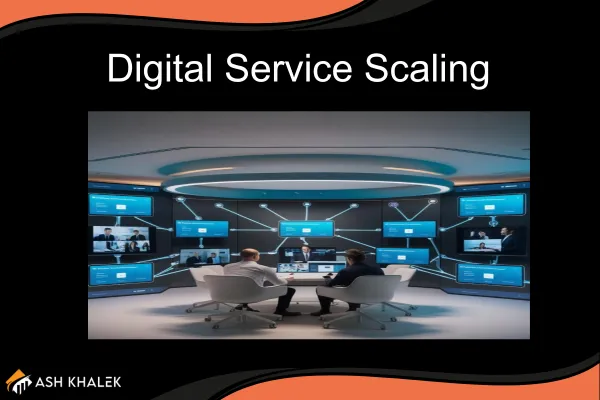BREAK THROUGH THE GROWTH CEILING
Practical tips, strategies, and insights to help service-based business owners scale sustainably without losing control or burning out.

Digital Platforms for Service Scaling: Building Technology Infrastructure for Growth
The Digital Leverage Few Service Firms Discover
Mark, founder of a 25-person HR consultancy specialising in employee engagement, found himself facing an enviable yet challenging situation. His firm's reputation for transforming workplace culture had created demand far exceeding its capacity to deliver.
With a six-month waiting list for new clients and his team already working at full capacity, Mark faced a crossroads. The traditional solution would be simple: hire more consultants, open new offices, and scale linearly. But something about that path didn't feel right to him.
"We've developed this methodology that consistently transforms workplace culture," Mark explained to his innovation team. "But our current model means we can only impact a handful of organisations each month, and only those with budgets for full-service consulting. There must be a way to make our approach accessible to more companies without simply cloning ourselves endlessly."
As he reviewed their proprietary engagement assessment framework—the tool at the core of their consulting success—Mark wondered if the solution might lie not in adding more consultants but in rethinking how their expertise was delivered entirely.
The Delivery Bottleneck Dilemma
Mark's situation reveals a common challenge that successful service businesses eventually face:
The External Limitation: No matter how valuable your expertise, the traditional service delivery model creates inherent constraints on reach and impact. When your methodology requires your team's direct time for every client interaction, you create a natural ceiling on how many organisations you can serve.
The Internal Frustration: Mark feels the tension between growing impact and maintaining quality. The traditional approach to growth—simply adding more people—doesn't excite him and seems to miss the opportunity for more fundamental innovation in how his firm delivers value.
The Core Belief: Mark started his business not just to build a successful consultancy but to transform workplace cultures at scale. The growing gap between the number of organisations his firm can serve and those that need their help challenges his fundamental purpose and vision.
The high-touch service model that established Mark's reputation has become the very limitation preventing his methodology from achieving its full impact potential.
A Fellow Traveler on the Journey
Having been part of the transformational journey for service businesses moving from pure consulting to platform-based delivery, I recognise the opportunity Mark is sensing. That nagging feeling that your expertise could help many more people if only you could break free from the constraints of direct delivery is worth paying attention to.
The shift from traditional service delivery to a Digital Platform isn't about diminishing value—it's about fundamentally rethinking how your expertise reaches clients. It allows you to maintain your methodological excellence while dramatically expanding your reach and creating more leverage in your business model.
Running my own business, combined with 20 years of helping businesses scale, has taught me what works—and, more importantly, what doesn't. I've seen the costly mistakes and dead ends that can waste precious time and resources. This hard-won experience helps you bypass the trial and error that slows most businesses down, allowing you to unlock your business's full potential while staying true to your vision and values.
The Digital Platform Framework for Scalable Service Delivery
Creating a successful platform involves translating your expertise into digital infrastructure that facilitates connection or automates service delivery:
1. Identify Your Core Methodology
What is the repeatable methodology, framework, or process that underlies your successful service delivery? What aspects could be systematised or automated without losing effectiveness?
2. Choose Your Platform Type
Digital Platforms generally fall into two categories:
Marketplace Platforms: Connect service providers and clients (think Upwork connecting freelancers with businesses)
Solution Platforms: Automate or digitise aspects of your service delivery through technology (think Shopify providing e-commerce infrastructure)
3. Define Your Platform Architecture
Develop the key components, including:
Core functionality that delivers primary value
User experience flows for different stakeholders
Monetisation approach (subscription, transaction fees, tiered access)
Integration points with your existing service business
4. Determine Your Development Approach
Based on complexity and resources, choose between:
Custom development for unique, proprietary platforms
Configuring existing platform tools and infrastructure
Hybrid approaches leveraging both custom and existing components
Taking Your First Steps
The journey to a successful Digital Platform begins with these practical moves:
Step 1: Service Deconstruction
Analyse your current service delivery to identify which components are:
Essential human elements requiring your team's direct involvement
Processes that could be automated or standardised
Matching functions that could be facilitated rather than performed
Step 2: Create a Minimum Viable Platform
Develop the simplest version of your platform that delivers core value. Focus on one key function rather than attempting to digitise everything at once.
Step 3: Test with Existing Clients
Introduce your platform to current clients as an enhancement to your services before offering it to the broader market. Their feedback will be invaluable for refinement.
What's at Stake?
Continuing with a purely direct service delivery approach means:
Your impact will always be limited by your team's available time
Your growth will require proportional increases in headcount and overhead
Many potential clients who could benefit from your expertise will remain unreachable
The value of your business will be tied primarily to your team rather than to scalable assets
A digital platform offers a different future—one where your expertise reaches exponentially more people, growth isn't limited by team size, and you build a valuable business asset that can generate revenue independent of your direct time investment.
Mark's Platform Transformation
Mark's journey to a platform-based model began with a careful analysis of his firm's employee engagement methodology. He identified that their proprietary assessment framework—which diagnosed cultural challenges and recommended specific interventions—could function effectively as a digital solution.
Working with a development team, Mark created the "CulturePulse Platform" with three key components:
A self-service assessment tool that replicated their diagnostic approach
A recommendation engine that provided customised intervention plans
A resource library of implementation tools and templates
The platform launched with three tiers:
Basic: Self-service assessment and recommendations
Premium: Basic plus facilitated implementation workshops
Enterprise: Full platform access plus customised consulting support
The transformation dramatically expanded their business:
Within 18 months, the platform served over 500 organisations compared to the 50 they could support annually through direct consulting
Revenue doubled through service business digital transformation while team size increased by only 15%, demonstrating actual service business growth without headcount
Their impact extended to smaller organisations who couldn't afford full consulting engagements
The business valuation increased significantly as they built a proprietary technology asset
"We're now reaching organisations we could never have served in our traditional model," Mark reflected. "The platform hasn't replaced our consulting—it's enhanced it. Our consultants now focus on the most complex challenges where they add the most value, while the platform handles the elements that can be effectively digitised."
Your Platform Potential
What aspects of your service delivery could be transformed into a Digital Platform? The opportunity to dramatically scale your impact begins with recognising which elements of your expertise could reach more people through technology.
Take the Scaling Readiness Check: 16 Questions. 5-minute check. Immediate insights to assess how prepared your business is to develop a Digital Platform and receive personalised guidance for your next steps.
[Take the Scaling Readiness Check Now → Discover your path to exponential reach through platform development]
In our next article, we'll explore Knowledge Products—powerful tools for packaging your expertise into courses, frameworks, or methodologies that can be sold repeatedly without requiring your direct delivery time.
Readiness Check:
Could Your Service Business Double?
Take this quick check to find out if your business is primed for sustainable growth. Get a personalised report that highlights your strengths and reveals areas for improvement.
Copyright © 2025. Ash Khalek. All rights reserved.
Privacy Policy | Terms & Conditions
Built with clarity (and coffee) by Strategic Marketing Tribe

